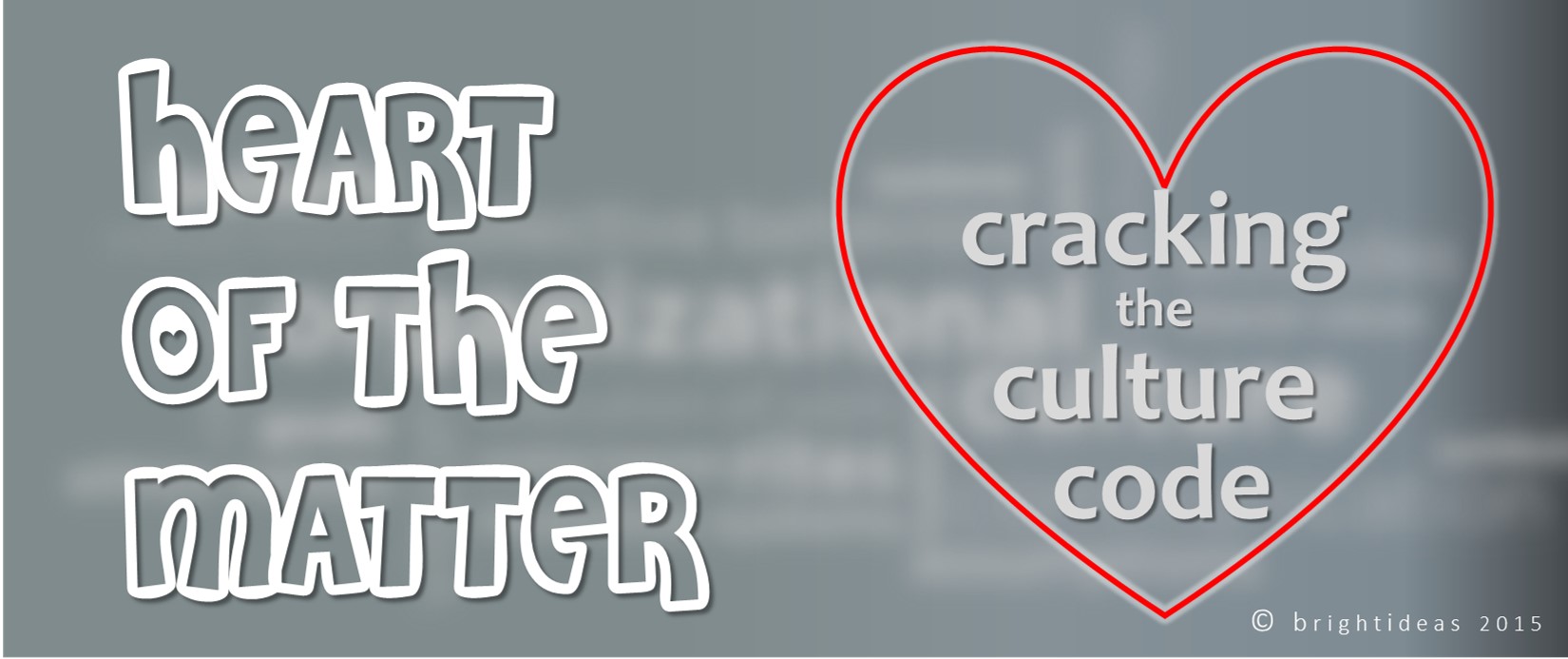Heart of the Matter: Cracking the Culture Code
 We all journey through our professional lives much like nomads in search of water, game, fair weather and green pastures. Choosing to move on or stay put depending upon the very same factors.
We all journey through our professional lives much like nomads in search of water, game, fair weather and green pastures. Choosing to move on or stay put depending upon the very same factors.
So why do we as professionals stick around or leave organisations? Does the answer lie only in the remuneration and recognition that we get or is there something more?
The importance of remuneration and recognition notwithstanding, the culture for sure plays a determining role.
What really is culture then?
One of the meanings (relevant to this context) in The Oxford English Dictionary is:
Culture /ˈkʌltʃə/
noun
The ideas, customs, and social behaviour of a particular people or society
For the purpose of this discussion the “particular people” above are others in the organisation and “customs” therefore are unwritten yet codified way of doing things.
Now, who really defines this?
Most modern organisations would like to believe that they have had a say in determining the “culture”. After all, the wise men and women do sit down and arrive at a collective description of “how they would like things to be done” at the workplace. Somebody then is assigned the job of encapsulating this in lofty words to be printed on posters and on-boarding kits.
But people don’t really read manuals or rely on-boarding kits to play their roles, performing and delivering objectives. They move around, circulate amongst the people who are already there. Who are the people they observe? The top-management and the heralded “stars” in the system become role models by default for people to “figure it out”.
Once they do, they either are comfortable with it or not, they chose to adapt themselves or not. These feelings and actions at the very beginning in a manner of speaking determine the end albeit, at a sub-conscious level. Taking us back to the basics of Values, Beliefs, Attitudes and Behaviour. The observation of the “collective” values must resonate with the individual.
At the end of the day, the wider organizational culture is a resultant of the value and belief systems of a handful, at times even a single individual-they are the source. They are the one’s pushing the metaphorical swing on which the employee is seated. Over time with their push and with the pendulum motion of the swing itself, the person seated would go higher and higher.
Those who enjoy it stay on for the ride, those who don’t leave; continuing their nomadic quest till they find a swing and a person pushing it who is to their liking!
